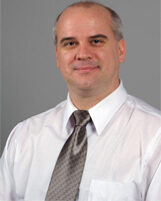RESPONSIBILITIES OF THE CANDIDATE: The general objective of this Master’s research project is to develop a thorough analysis of existing measurements errors in the case of a stand-alone DGPS and RTK receiver. The analysis and tests will be done first in Matlab/Simulink (in simulation), which will involve the use of a validated model. The next step of the study will be the analysis of real-time measurements. Both approaches, the simulation and real-time one, will be done in two configurations: in a static environment and in a dynamic one. This part of the research will involve close collaboration with our industrial partners. The aim of this approach is to understand as much as possible the influence of the environmental aspects on the measurement errors and the improvement that can be achieved by using specific algorithms developed in the other Master’s Degree research project. Hence, the 2 Master’s Degree students should work very close and discuss with the post-doctoral researcher about their research works. After a complete evaluation and validation in simulation (Matlab/Simulink), the tests and analysis will be done on real-time data acquired on a real DGPS and RTK receiver. New simulations will be required for improving the simulation model, in order to obtain better performances and to get closer to the reality. The main goal of this project is to give a thorough insight into DGPS and RTK receivers’ measurement errors, with a special focus on their frequency distribution analysis. This 12 months Master’s Degree research project will start with a meticulous analyze of DGPS and RTK errors in time and frequency domains, with an emphasis on the frequency interpretation. A bibliographical study of the existing measurement errors with DGPS and RTK receivers will be required, in order to understand what improvements could be considered and to be able to obtain a good modelization and analysis.
![]()
